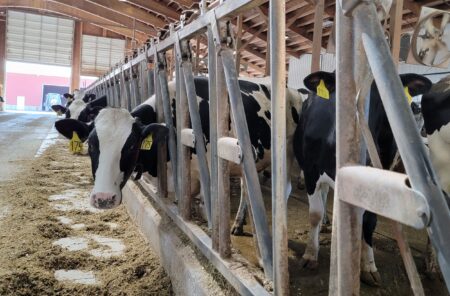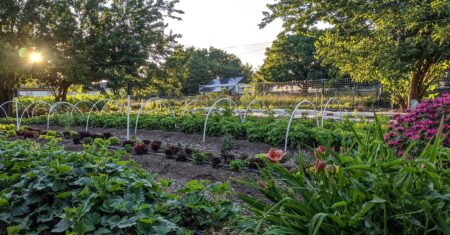This week, the land-grant Cornell University launched a free online course, Mental Health and Suicide Prevention in Rural America, which is designed to support strategies and resources to navigate mental health challenges — including suicide — in rural communities. It is available through the university’s eCornell platform.
The program is being put on by the College of Veterinary Medicine and NY FarmNet, in partnership with Rural Minds, and is tailored toward veterinary students, veterinarians, and agribusiness professionals. That said, Cornell notes that even though the course focuses on mental health in rural America, the skills and resources shared are broadly applicable, so all those with interest are welcome to access it.
“As a dairy farmer, I know firsthand that veterinarians are an integral part of all rural communities. And they may be among the first to see warning signs that a client is experiencing a mental health challenge but may not recognize those same signs in themselves,” said Jeff Winton, a Cornell alum and founder and chairman of Rural Minds, a nonprofit organization dedicated to promoting mental health in rural America.
Research has shown that rural communities have approximately 65 percent higher rates of suicide in their population compared to urban areas. Farmers are twice as likely as those in other occupations to die by suicide — a statistic likely exacerbated by those experiencing financial instability and isolation.
Rural community members also face barriers to care. Rural areas have 20% fewer primary care providers than urban areas, with 65 percent of rural counties lacking a psychiatrist. Furthermore, many rural community members have expensive or nonexistent internet service and lack adequate health insurance coverage.
Complicating matters are cultural norms that emphasize self-reliance as a virtue and stigmas against those who seek mental health support.
“Professionals working in rural-agricultural regions face immense challenges related to stress and mental health,” said Adam Howell, outreach director for NY FarmNet, which was founded by the College of Agriculture and Life Sciences.
The course provides practical tips to help with mental health challenges, including recognizing and responding to warning signs, as well as providing key information on resources such as crisis hotline numbers and local supports.
The course meets a need discussed in 2022 by veterinary Dr. Lorin Warnick, ’94, the Austin O. Hooey Dean of Veterinary Medicine, as part of the college’s “Many Voices, One College” speaker series. Warnick’s talk focused on his experience growing up as part of a farming family in rural Montana, and on the unique experiences that rural community members face.
“All of us continue to depend on rural areas for many of life’s essentials,” Warnick said in that talk. “But farming is even more of a solitary pursuit than it used to be, and the social costs of the loss of so many family farms may be even greater than the economic losses.”


:max_bytes(150000):strip_icc()/a-case-of-bird-flu-in-a-missouri-resident-is-the-only-diagnosis-in-the-united-states-this-year-where-the-person-did-not-have-contact-with-infected-dairy-cattle-or-poultry-photo-by-stephen-ausmus-animal-research-services-usda--7c1d7d4efa6b462ea385a2d18133ecbf.jpg)
:max_bytes(150000):strip_icc()/Congress-WideShot-2000-5a91ee8f6de542dfa39fc245aef88653.jpg)
:max_bytes(150000):strip_icc()/170922-4-2000-4834775372984ffebde18f6186834c2d.jpg)








